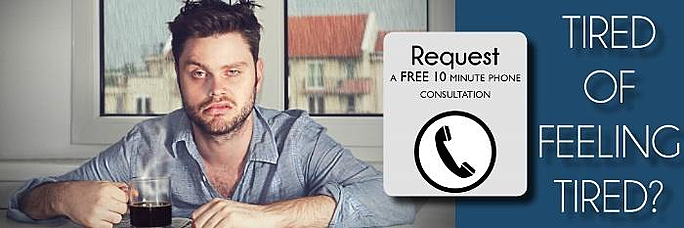
This is why tackling the three segments of your life individually might not necessarily lead to better and longer sleep, or a better and leaner physique. Dealing with them in unison, as part of a whole lifestyle can help you understand their interconnected role in your life. The bottom line is, by optimizing your diet and exercise plan, you can greatly contribute to the quality of your sleep, and consistently so. Here’s what you can do.
Exercise selection can affect your sleep
Some workouts make you feel pumped and ready to conquer the world, while others are perfect for preparing your body for bedtime. With that in mind, make sure that you choose the right exercises depending on the time of day when you can train.
You can introduce sleep-empowering yoga poses that lead to better sleep right before bedtime. Save your strenuous, high-intensity workouts for earlier times of the day. By timing your workouts and choosing specific exercises to fit your sleep schedule, you can help your body prepare for nighttime more easily and reap the rewards of restorative sleep.
Foods to cut to sleep better
Some foods, like candy and sweets packed with processed sugar, are generally deemed unhealthy and you
 would do yourself good by curbing them all together, before bedtime as well. Other foods, however, aren’t necessarily bad for you, but they could be bad for your sleep patterns.
would do yourself good by curbing them all together, before bedtime as well. Other foods, however, aren’t necessarily bad for you, but they could be bad for your sleep patterns.Coffee and chocolate both contain caffeine, and both can disrupt your sleep by preventing that feeling of tiredness from setting in. Alcohol might get you to fall asleep faster, but as soon as it wears off, it can cause issues with your deep, restorative sleep patterns and wake you up in the middle of the night. Spicy meals can lead to heartburn, which can also play havoc with your sleep, so it’s a good rule of thumb to choose lighter, milder meals before sleep.
Time your supplements right
Whether to shed weight or manage energy better, many women turn to supplementation in order to stay on track with their fitness goals. Choosing the right kind of women’s workout supplement and timing its consumption can make all the difference for your sleep, as well.
Why? Because many supplements, especially the pre-workout kind, contain stimulants like caffeine and are best consumed in the morning instead of immediately before bedtime.
If you use supplementation, make sure that you time your intake and work out better for the sake of better sleep. Try moving your workouts to the morning or early afternoon, if possible. Then your supplements will actually help you sustain your energy levels without negatively affecting your sleep.
Meal-timing for energy management
Food is our fuel and our main source of energy. Naturally, different foods can cause different reactions in our body, so in addition to consuming specific supplements when they are intended, you should also know which foods are best at what time of day.
Research has shown that our circadian rhythm depends on our eating patterns as well as many of our other habits, exercise included. Different mealtimes can cause your body to produce different hormones, which could either boost or prevent quality sleep. If you have reduced or eliminated your intake of alcohol, processed sugar, and similarly negative ingredients, you can also time your meals better for optimal recovery during the night.
Complex carbs such as oatmeal are a good source of energy, and they can be a healthy dinner option, too, as they take less time to digest compared to protein and fats.
Tough-to-digest, although healthy foods like lean meats and dairy should be reserved for your morning and afternoon meals.
A light salad can also be a good option before bed, to avoid midnight cravings and keep you full until breakfast without overburdening your digestive system.
How to adjust your workout based on sleep
 Some people, especially fitness enthusiasts, have a hard time letting go of their hardcore workout routine when they’ve had a poor night’s sleep. Caused by noisy neighbors, an unexpected emergency, or any other external factors, your sleepless night should, indeed, push you to choose a different approach to your morning workout. Ideally, you should skip it altogether. Instead of a round of HIIT or a weightlifting session at the gym, you should choose something that will be easier on your body and your mind alike.
Some people, especially fitness enthusiasts, have a hard time letting go of their hardcore workout routine when they’ve had a poor night’s sleep. Caused by noisy neighbors, an unexpected emergency, or any other external factors, your sleepless night should, indeed, push you to choose a different approach to your morning workout. Ideally, you should skip it altogether. Instead of a round of HIIT or a weightlifting session at the gym, you should choose something that will be easier on your body and your mind alike.Why? Because putting your body through too much strain after failing to recuperate properly can only lead to an injury or it can boost your sugar cravings when you feel that energy slump after your workout. A lighter, more controlled training session focusing on moderation, such as treadmill running or some yoga can help you recover, wake up, and stay on track with your goals without putting your body through agony.
Of course, there’s a myriad of other factors impacting your sleep quality, choice of nutrition, and workout performance. If, for example, you spend hours before bedtime staring at your phone or computer, chances are that the blue light will disrupt your sleep and derail your health goals. However, by adjusting your habits in accordance with one another instead of in isolation, you stand a better chance at being healthy, well-rested, and vital for the long haul.
If you are struggling with getting enough sleep, or would like some expert advice about the connection with exercise and sleep, contact your local sleep experts. If you live in Alaska, click on the link below to connect with a professional sleep specialist.












